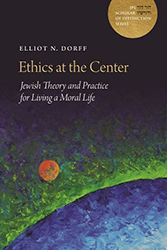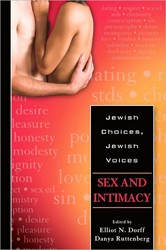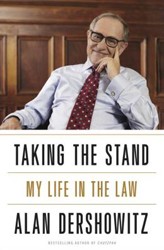Elliot Dorff has been wrestling with Jewish theology and Jewish legal philosophy for many years. As an academic based at the American Jewish University (formerly the University of Judaism) in California, he has published 200 articles on Jewish thought, law, and ethics, together with thirteen books, and lectures often on this topic. The current work is a pulling together of much of his previous positions and fleshing them out in a structured format.
His papers have formulated many of the validated positions of the Conservative Movement on infertility treatments and on end-of-life issues, and his Rabbinic Letters on human sexuality and on poverty have become the voice of the Conservative Movement on those topics. Although he is highly regarded within the Conservative movement, this high regard does not always translate into agreement. In fact, learned members of the Jewish Theological Seminary faculty vehemently disagree with many of his positions.
Dorff, who received a Ph.D. in philosophy from Columbia with a dissertation on moral theory, believes that if a law is immoral based on our understanding, then it can and should be changed. The ability to change a law is predicated on the premise that the Torah is not the word of God. If the Documentary Hypothesis (key word is hypothesis) is accepted and the Torah was man-made then this logic holds: If man wrote it, man can change it. Dorff claims there is due regard for the weight of tradition when making changes and that communal concurrence should help guard against precipitous changes. Unfortunately this has not always been the case. His position on homosexuality almost split the movement. He places much faith in man’s understanding of what is moral, yet still maintains that Jewish tradition embodies a revelation of divine truth and will. This seems very contradictory.
This book will be judged by those who are empowered to act on behalf of the Conservative movement. If they accept Dorff ’s thesis then certainly more and radical changes are on the way. “The trick…” as Dorff states “is striking a balance between assimilating to the outside environment or culture and asserting one’s own distinctiveness.” Further complicating this delicate balance is the manner in which Dorff selects rabbinic teachings upon which to base his innovations and interpretations. Rabbis in every generation looked for precedents. It is highly unlikely however that the rabbis whose sources are cited in some of these responsa would recognize the Judaism their decisions are purported to support, Dorff ’s demurral notwithstanding.
This book is a serious attempt by a serious scholar to address contemporary issues facing Conservative Jews. He develops a detailed case based on in-depth analogies of organism and covenant. He strives to understand the nature and functioning of Jewish law in a contemporary setting. “The strength of my analysis will depend on the extent to which what I suggest accurately reflects the realities of Jewish law in the past and present.” For this reviewer, this book does not meet that standard. Had there been more hugging of the tradition instead of wrestling with it, perhaps.
Wallace Greene, Ph.D., has held several university appointments, and currently writes and lectures on Jewish and historical subjects.





